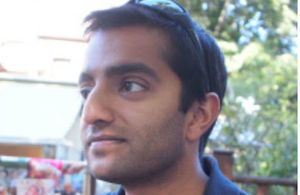Up close and personal with international development
Blog by the Head of the UK鈥檚 Department for International Development Vel Gnanendran.

Vel Gnanendran
In the wake of the #Trump and #Brexit, there is a lot of talk about whether we鈥檝e taken our eyes off the ball on globalisation. I want to look at that from the perspective of the government-donor relationship at country level, what I鈥檝e previously called #OldAid.
But first, lets rewind. Tanzania has a history of pioneering new approaches to development. In the mid-1990s, the government and donors established ways of working here that set the model for the rest of the world. That model was primarily built around General Budget Support (GBS) where donors provided resources into the budget to finance agreed outcomes. It helped achieved great things, from difficult reforms to millions of children in school. But as GBS has declined, that model has broken down. Absent a replacement, development partners 鈥� and I include myself in this 鈥� have lapsed into bad habits. So our collective challenge now is to build a new model for Tanzania. One that is fit for purpose in a world of constant change.
To build that new partnership, we 鈥� the donors 鈥� need to play our part. We have to get our own house in order and ask ourselves what we can do better. As a starter for five, here are my thoughts.
鈥淲e choose to go to the moon鈥�.
In 1962, President Kennedy directed the US government to achieve what many thought was a pipe dream. Seven years later, Apollo 11 landed on the moon. Why is that relevant to how donors work in Tanzania? Because we need to ask ourselves whether we have got the right balance between process and substance. Right now, I don鈥檛 think we have. We spend too much time talking about spreadsheets and not enough time thinking about how to ensure every Tanzanian child receives a quality education.
鈥淚t is unwise to be too sure of one鈥檚 own wisdom鈥�.
This quote (from Gandhi) encapsulates two issues. First, and something I鈥檝e mentioned before, is the need for more humility among donors. We shouldn鈥檛 presume to dictate, not least because we don鈥檛 always know the answers. Two-way conversations usually get better results than instructions. Second, we spend too much time in Dar es Salaam, in government offices and talking to ourselves. I am a firm believer in the notion that better development comes from hearing different perspectives, even when that takes us out of our comfort zone.
鈥淲hen in Rome, do as the Romans do鈥�.
Any aficionado of the Paris Principles will hear all the right words here: government ownership, partnership and mutual accountability. But in reality, we鈥檝e not been great at sticking to these principles. There is always a balance between what a country wants to do and what its development partners are prepared to support. But I worry that balance has shifted too far to the latter: it鈥檚 about what we want to do, our requirements and our incentives. When our partners propose something we don鈥檛 like, our first instinct is to try to change them rather than change ourselves. We have to learn to step back and let Tanzania choose its own path.
鈥淧atience is bitter, but its fruit is sweet鈥�.
In my two years in Tanzania, I鈥檝e learn鈥檛 that when things go slower than we would like, there are often good reasons. For example, internal consensus building (or indeed disagreements) within government ministries. That鈥檚 normal, even good. So when a decision is taking longer than expected, we need to take the time to understand it before rushing to judgement. And when there are differences of view, being patient, private and respectful often allows our partners the space to find better solutions.
鈥淔or the times, they are a changin鈥�.
Underpinning all of this is the unconcious bias that Tanzania is a donor-dependent country, with traditional aid as the only solution to all problems. That no longer holds true. Aid is a much smaller, albeit important, piece of the picture. Tanzania is a proud country. And demography, technology, urbanisation and climate change are going to reshape its future. So when we think about how we, as development partners, want to support Tanzania, we need to be thinking about tomorrow, not today and certainly not yesterday.
Now I鈥檝e been deliberately extreme and one-sided in my portrayal of us donors here. I鈥檝e not, for example, discussed what our Tanzanian partners might do differently. That鈥檚 intentional. I want to force us to ask the tough questions of ourselves.
Why? Because we need to be better. We need to find new ways of working that reflect a more complex world, seize the opportunities that this complexity presents and prepare for the future. We owe that to all the young people in Tanzania. Under the leadership of the Tanzanian Government, thinking about this new model has started. I鈥檓 optimistic that it will lead to a new approach that will ultimately benefit the Tanzanian people. That鈥檚 what Global Goal 17 is about. And if we get it right here, Tanzania can once again be a model for the rest of the world.